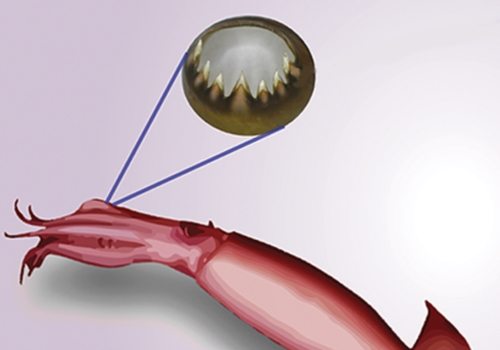Squid tentacles are loaded with hundreds of suction cups, or suckers, and each sucker has a ring of razor-sharp “teeth” that help these predators latch onto and take down prey, according to the American Chemistry Society (ACS).
In a study published in the journal ACS Nano, researchers report that the proteins in these teeth could form the basis for a new generation of strong, but malleable, materials that could someday be used for reconstructive surgery, eco-friendly packaging and many other applications.
Ali Miserez and colleagues explain that in previous research, they discovered that sharp, tough squid sucker ring teeth (SRT) are made entirely of proteins.
That makes SRT distinct from many other natural polymers and hard tissues (such as bones) that require the addition of minerals or other substances to perform the right activities, they say.
The team had identified one “suckerin” protein and deciphered its genetic code.
They also found that this protein could be remolded into different shapes.
In the new study, they identified 37 additional SRT proteins from two squid species and a cuttlefish.
The team also determined their architectures, including how their components formed what is known as “ß-sheets”.
Spider silks also form these structures, which help make them strong.
And just as silk is finding application in many areas, so too could SRT proteins, which could be easier to make in the lab and more eco-friendly to process into usable materials than silk, the researchers say.
“We envision SRT-based materials as artificial ligaments, scaffolds to grow bone and as sustainable materials for packaging, substituting for today’s products made with fossil fuels,” says Miserez.
“There is no shortage of ideas, though we are just beginning to work on these proteins.”
The authors acknowledge funding from the Singapore Ministry of Education, the Singapore National Research Foundation and the Biomedical Research Council of the Agency for Science, Technology, and Research.










